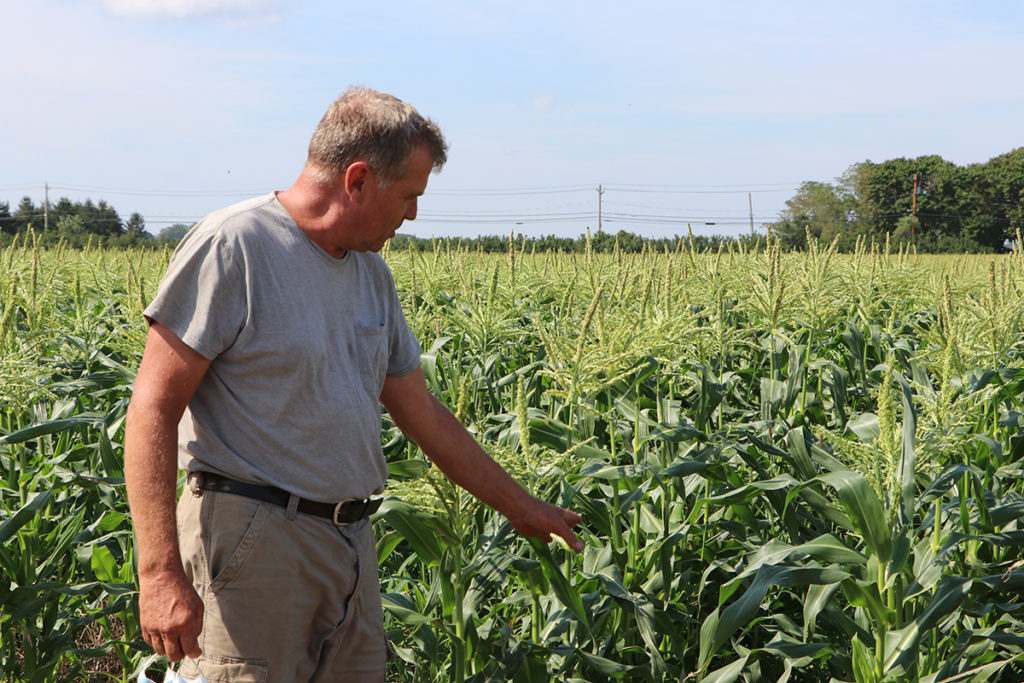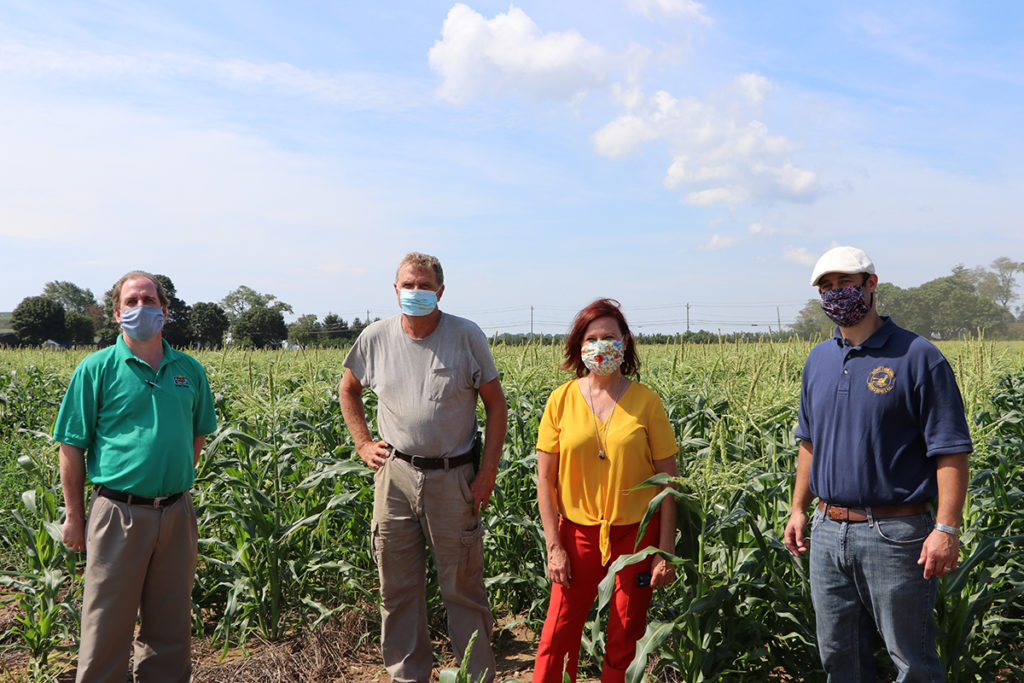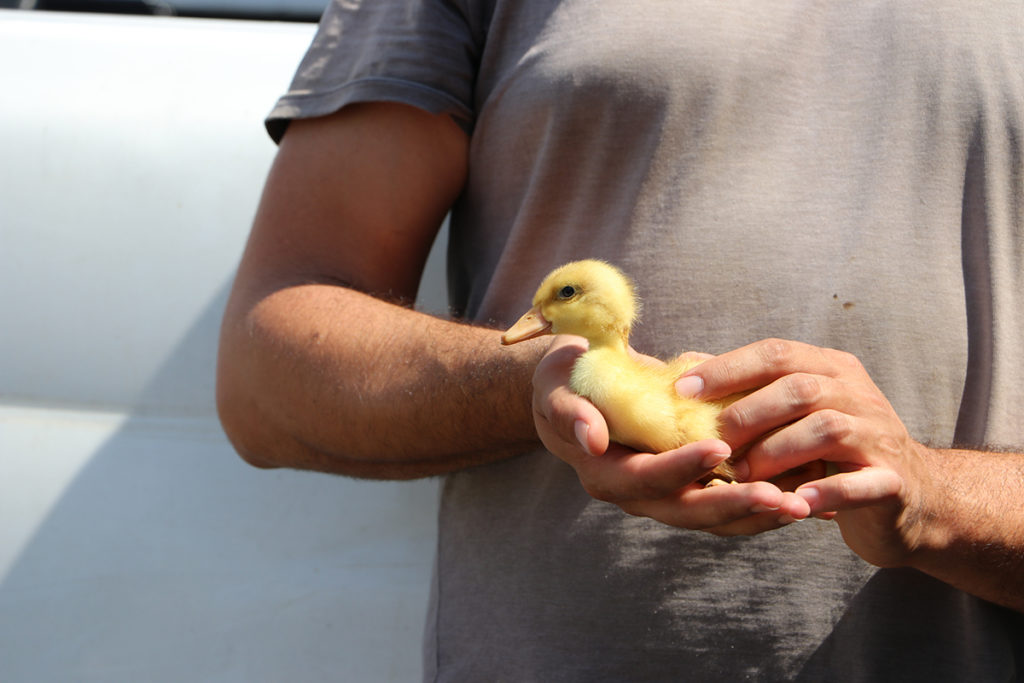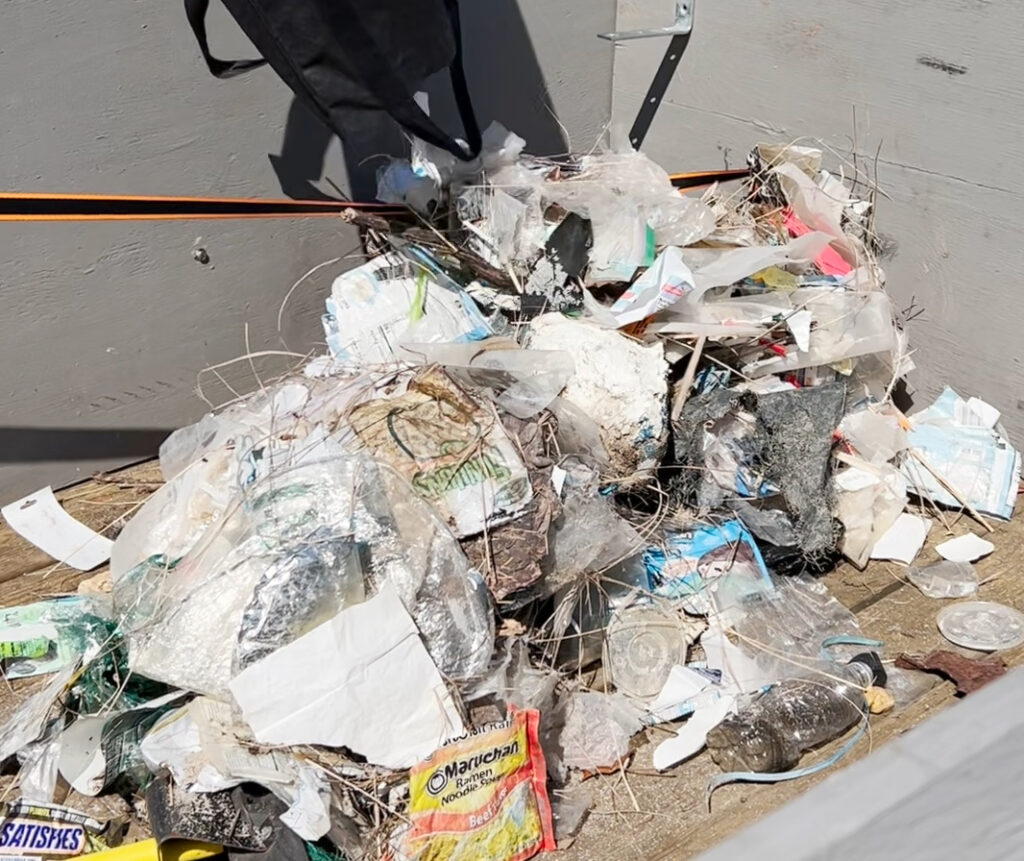How COVID-19 has impacted some North Fork farms

Things are a little bit quieter at the Crescent Duck Farm in Aquebogue these days.
“I’m used to having all these barns filled,” fourth-generation farmer Doug Corwin explained from his 140-acre farm Friday, hundreds of days-old ducklings milling around him.
As the COVID-19 pandemic hit, shutting down the wholesale and restaurant industries virtually overnight, Mr. Corwin was forced to lay off 70 of his approximately 84 employees. “I’ve never seen a year where you had to make so many radical decisions. I’ve never laid off anyone in my life … to have 70 people at once,” he said. “To survive, you’ve got to do that.”
“When this happened in the spring, we talked about closing.”
Phil Schmitt
Over four months since making that call, Mr. Corwin says he’s been able to bring back 55 employees with more expected to return over the next month.
Their massive commercial operation, which typically produces one million Long Island Pekin ducks each year, supplies to restaurants worldwide, including fine dining institutions like Jean-Georges in Manhattan.
“Our bread and butter is New York, Boston and Philly,” Mr. Corwin said. “And these are the areas that got hit hardest.”
These ripple effects of the pandemic and how he’s responded were among the topics discussed during a tour of East End farms organized by the Suffolk County Legislature’s presiding officer Rob Calarco Friday.
“My staff sometimes laughs at me and says I need a passport to leave my district,” said Mr. Calarco, whose home district includes Patchogue, Medford and portions of Blue Point, Bellport and Middle Island. Now in a more countywide role, Mr. Calarco said he feels a responsibility to get out and see different things that are impacting each community. Agriculture also ties directly into his work as a member of the county’s Soil and Water Conservation District.
“It’s important for me to get a better understanding of the needs of the agriculture industry,” he said, in addition to learning about the impacts of COVID-19 on the businesses.

Friday’s tour featured stops at a range of agricultural operations, including the Long Island Horticultural Research & Extension Center in Riverhead and featured stops at Schmitt’s Farm, Crescent Duck Farm, DeLea Sod Farm, CJ Van Bourgondien Greenhouses, Aeros Oyster Farm and Krupski Farms in Peconic, long farmed by Suffolk County Legislator Al Krupski and his family.
At the 165-acre Schmitt’s Family Farm in Riverhead, farm crews returned in February to begin digging their signature crop.
“It killed the horseradish business,” owner Phil Scmitt said of the COVID-19 shutdown. The spicy root vegetable is a top seller around spring holidays, like Passover and Easter.
The outbreak of the virus also shut down spring city farmer’s markets they usually travel to. “When this happened in the spring, we talked about closing,” Mr. Schmitt said.
Thankfully, they didn’t have to.
Even as restrictions grew stricter, the Sound Avenue farmstand was able to pivot to a curbside pickup model Mr. Schmitt says was supported by the local community and supplemented with visitors. “We got a lot from out west,” he said. “They wanted to get out of their house and maybe they didn’t want to go to the supermarket.”
Things have since calmed to more normal levels, Mr. Schmitt said, though with precautionary measures like masks at the farm stand, in place.

Mr. Schmitt welcomed Mr. Calarco, who was joined by Long Island Farm Bureau administrative director Rob Carpenter and Riverhead Town councilwoman Catherine Kent to a sprawling cornfield off of Roanoke Avenue, where he spoke about soil regeneration and composting on his farm.
Mr. Carpenter spoke specifically about how state environmental regulations put in place following a county report on groundwater and compost and mulch operations have complicated things for farmers.
Mr. Calarco said he often views the issue through a different lens, as commercial composting facilities have cropped up in largely residential neighborhoods in his district.
“As you can imagine, that causes conflict,” he said.
One key takeaway from Friday’s visit, Mr. Calarco said, is that sometimes well-intended policies can be counterintuitive.
“There’s no one-size-fits-all solution to these issues,” he said. “[Especially] when it applies to how farmers like Phil are operating. He needs to be able to have a place to bring [composted] material and compost it on site, which makes it a whole lot easier for him to get it out into his fields and utilize it.”

During Friday’s stop at Crescent Duck Farm, the group also toured a concrete and steel hoop storage facility that was unveiled in 2017 as a way to prevent pollution from duck manure stored on-site from impacting nearby Meetinghouse Creek. The Corwin family has also invested millions in a wastewater treatment facility to mitigate nitrogen pollution at the farm.
The shutdown period, while painful, did allow for additional maintenance and investment projects, including a new feeding system.
They’ve also invested upwards of $60,000 to protect against COVID-19 as workers return to the farm. “My biggest worry is the food plant,” Mr. Corwin said, pointing out outbreaks at facilities in other parts of the U.S.
In addition to masks and plexiglass barriers, Mr. Corwin said they have expanded areas for workers to take socially distant breaks and undergo temperature checks before starting their day.
As he contends with a colossal shift in the industry, Mr. Corwin said he isn’t panicking about the future.
Rather, he sees the pandemic as a way to challenge their ingenuity by exploring new markets: Halal duck, anyone?
“We’ll survive, we’ll adapt,” he said. “[You’ve] got to keep moving forward, think of new ideas and be willing to invest and take risks.”








